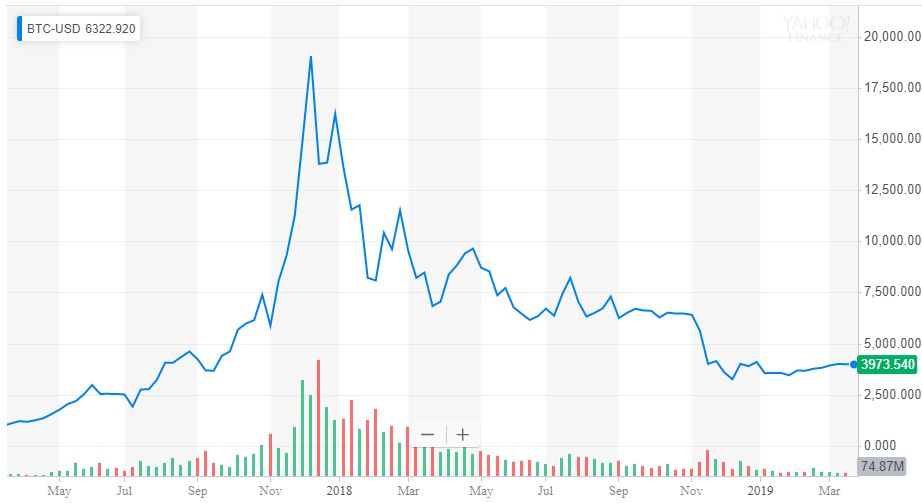Microsoft Bing Trashed 5 Million Crypto Ads in 2018: Who Cares?

Microsoft Bing blocked millions of Bitcoin and crypto-related ads in 2018. | Source: Shutterstock
Microsoft search engine Bing ranked second in popularity in January. The ranking didn’t include YouTube, which by itself processes 3 billion queries per month . This ranking enabled Microsoft to have a severe impact on the dissemination of cryptocurrency advertisements in 2018, according to a “year in review” report published today .
Comedy Gold: Microsoft Says 2018 Saw Bitcoin ‘Bull Run’

First, comedy gold. The Bing report wrongly claims that cryptocurrency experienced a “bull run” in 2018.
“Cryptocurrency as an asset class saw a bull run in 2018, increasing valuations multi-fold.”
As readers are probably well aware, 2018 was the wind-down year. We dropped from over $15,000 at the beginning of January to $6,000 by November, and from there another $2,000 per Bitcoin was shed. For months now the price has fought to maintain around $4,000, giving it a remarkable “stability” factor not often seen in Bitcoin markets. Erstwhile, altcoins have had some breakouts, but nothing compared to 2017.
In case Bing updates the text, here’s a screenshot:

Let’s leave that aside for now. Bing is far from alone in terms of significant platforms that disallow most types of cryptocurrency advertising. Several companies including Jack Dorsey’s Twitter banned most types of crypto ads in 2018.
Is Ad-Free Crypto Searching a Bad Thing?
Microsoft justifies the ad banning for the expected reasons:
“The high returns and volatility of cryptocurrencies invited a lot of interest from retail investors and speculators looking to make a quick return. There wasn’t much regulatory oversight, and the overall pseudo-anonymity built into currencies like bitcoin made cryptocurrency a prime target for fraudsters and scam artists to defraud end-users. Bing Ads, therefore, decided to ban cryptocurrency content from our advertising platform and blocked more than 5 million ads containing cryptocurrency content.”
This reporter, who uses Bing about 80% of the time, can confirm that when you search for most crypto-related subjects, there are no sponsored results.

Is that a bad thing? Not really.
Search engines natively rank content based on its popularity and various machine learning tactics to determine its validity. As cryptocurrency enthusiasts, we’d prefer that people find their way into the crypto space through organic and sound means. “Get Free Bitcoin Here” being at the top of every search result, with some form of scam likely on the other end, was probably not the best look for the space.
Will The Total Ban Continue Forever?
The ban on all advertising related to Bitcoin and cryptocurrency is probably not the best thing, however. Legitimate companies also use advertising. Terms like “Buy Bitcoin” would preferably yield sponsored results when companies are running promotions.
One hopes that eventually, the major platforms find a way to delineate between good and lousy cryptocurrency adverts, rather than to impose blanket bans. After all, it’s revenue for them, and in many instances, it’s an excellent way for the community to expand